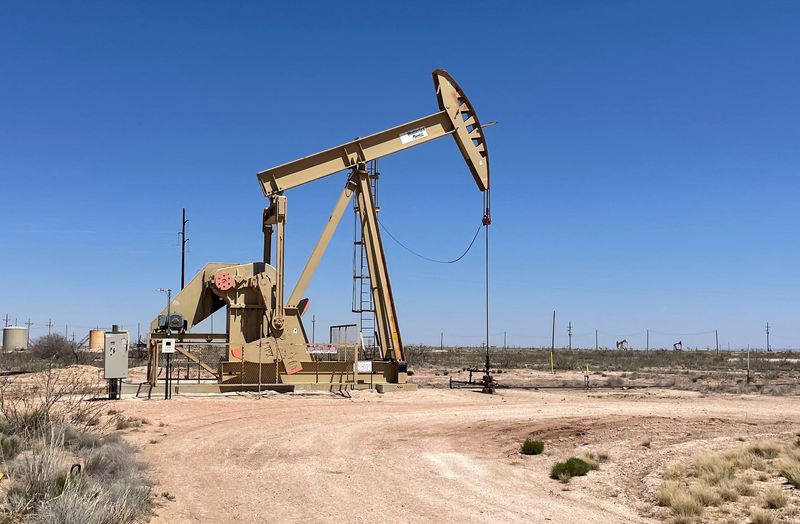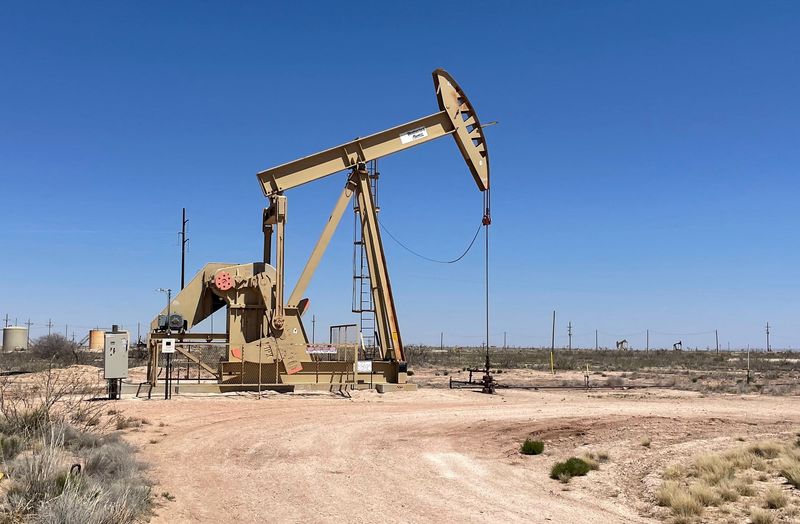
By Arathy Somasekhar
HOUSTON (Reuters) -Oil prices edged lower on Thursday as global supply seemed largely unaffected by worries of a wider Middle East crisis after the killing of a Hamas leader in Iran.
Global benchmark Brent crude futures fell 67 cents, or 0.8%, to $80.18 a barrel by 12:25 p.m. ET (1625 GMT). U.S. West Texas Intermediate crude fell 87 cents, or 1.1%, to $77.06.
In the previous session, the most active contracts on both benchmarks jumped about 4% as worries about a wider conflict in the Middle East were stoked by the killing of Hamas leader Ismail Haniyeh in the Iranian capital Tehran shortly after Hezbollah’s most senior military commander in Beirut.
“I think there is a growing realization that we haven’t seen any real supply disruption. The market is refocusing itself away from geopolitical issues, and looking at global demand for crude,” said Dennis Kissler, senior vice president of trading at BOK Financial.
A meeting of top OPEC+ ministers kept oil output policy unchanged including a plan to start unwinding one layer of output cuts from October.
OPEC+’s policy as agreed in June calls for some members to gradually phase out cuts of 2.2 million barrels per day from October 2024 to September 2025. The group also agreed to extend earlier cuts of 3.66 million bpd until end-2025.
Supporting prices, U.S. government data on Wednesday showed that robust export demand pushed weekly U.S. crude oil stockpiles down by 3.4 million barrels.
In the longer term, investors are not confident of Chinese demand, said Phillip Nova analyst Priyanka Sachdeva, adding this concern will limit the upside in oil prices.

A private sector survey on Thursday showed China’s manufacturing activity in July had shrunk for the first time in nine months as new orders declined. On Wednesday, Chinese official data showed manufacturing activity slipped to a five-month low in July.
Elsewhere, the Bank of England cut interest rates from a 16-year high on Thursday. On Wednesday, Federal Reserve Chair Jerome Powell said U.S. interest rates could be cut as soon as September. Lower interest rates decrease the cost of borrowing, which can boost economic activity and oil demand.
This post is originally published on INVESTING.




